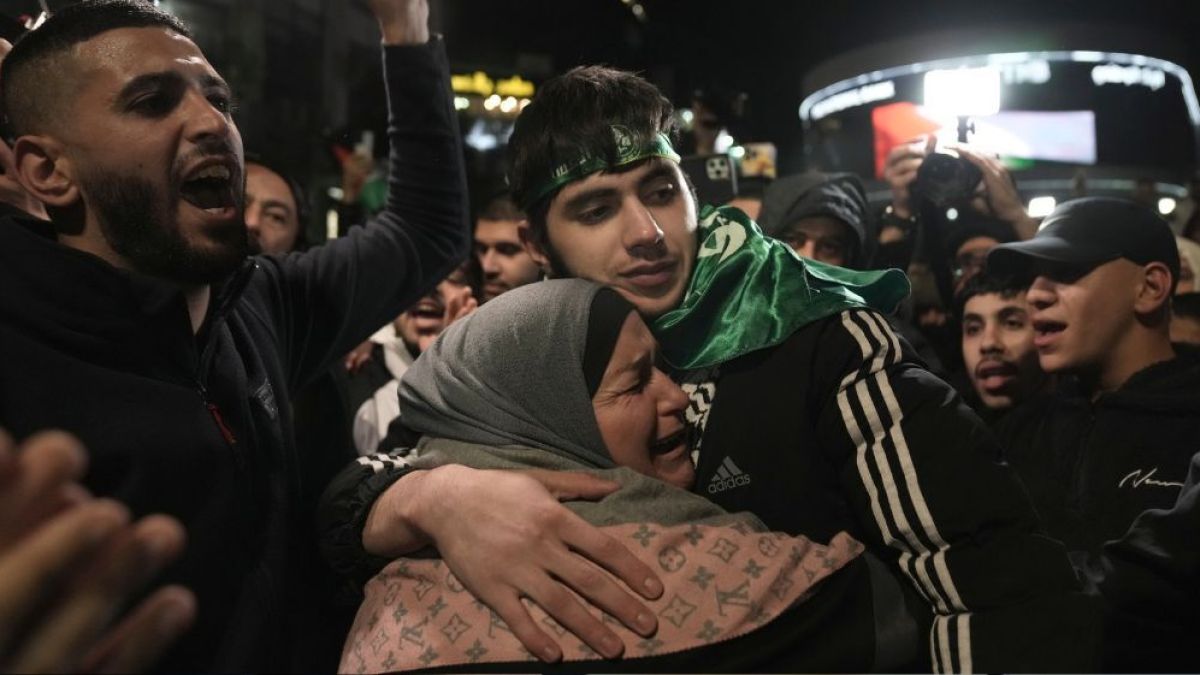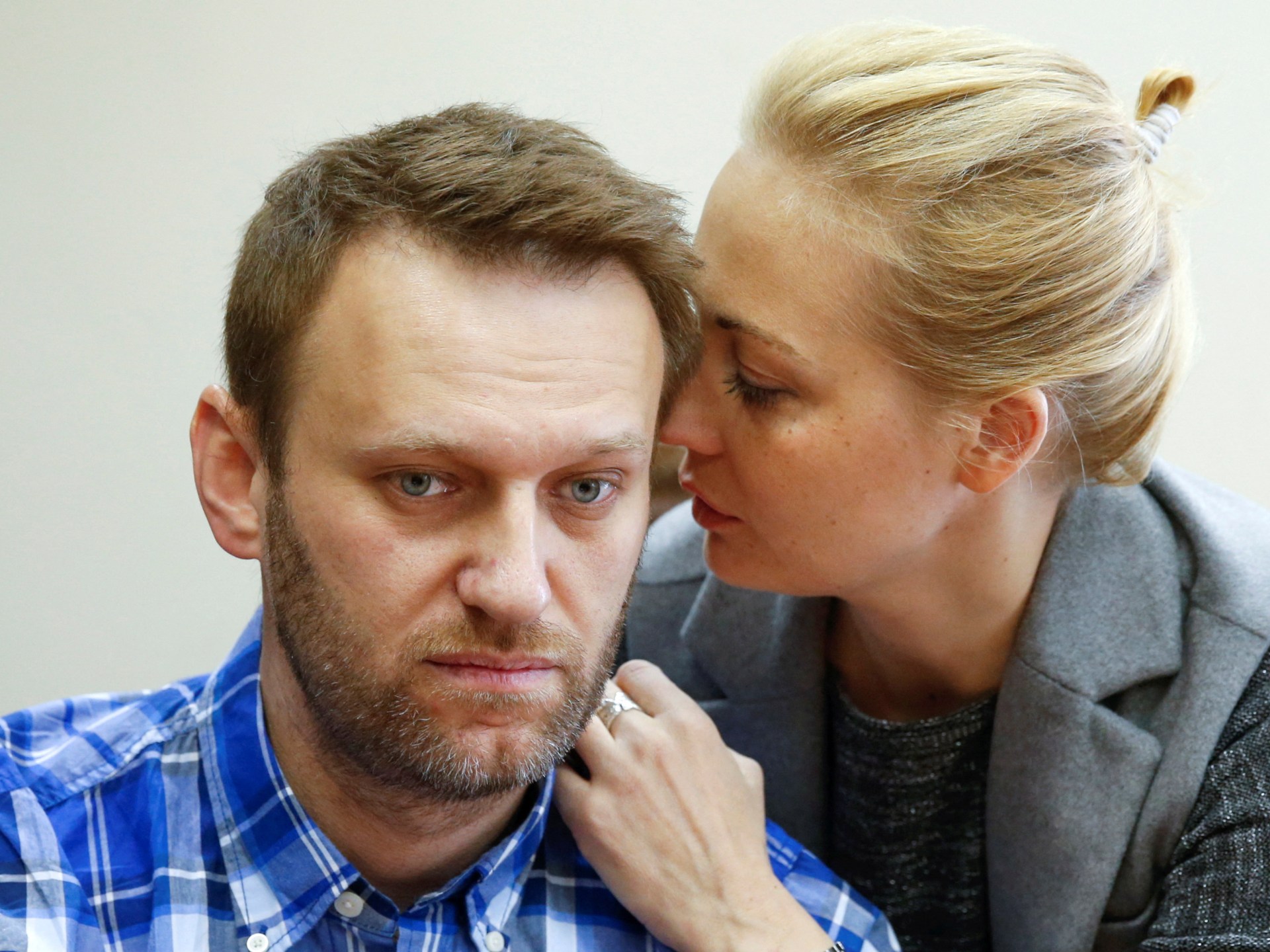Who are the U.S. citizens involved in the prisoner swap with Iran?
Namazi, an Iranian American, had been held for nearly eight years, the longest stretch in Iranian prison served by any U.S. national. Two others detained since 2018 — Emad Shargi, also a dual national, and Morad Tahbaz, who holds U.S., British and Iranian citizenship — were also moved to house arrest, according to a statement by Jared Genser, the Namazi family’s lawyer.
The fourth American was not identified, said Genser, who could not confirm their whereabouts. A fifth American, whose identity is not public, was recently arrested and appears to have already been transferred to house arrest, according to Genser. The Washington Post has not independently verified these reports.
Tensions between the United States and Iran remain high.
Negotiations over a return to the 2015 nuclear deal — from which President Donald Trump withdrew and which President Biden has vowed to revive — fell apart last year after months of tense talks. Without the deal, which called for the rollback of some U.S. sanctions, Iran’s economy is in free fall, even as its nuclear energy program continues to expand. The country’s clerical leaders have been on high alert since their violent suppression of the anti-government protest movement that erupted last year.
Here are three of the five U.S. prisoners in Iran who are subject to the deal, and what we know about them.
Siamak Namazi, 51, is an Iranian American businessman who was living in Dubai when he was arrested while visiting relatives in Iran in 2015. An Iranian court sentenced Namazi to 10 years in prison on charges of collaborating with a hostile foreign government.
The United Nations ruled that Namazi was not granted a fair trial. He is being held in Iran’s notorious Evin Prison, where family members say his health has deteriorated after spending time in solitary confinement.
Namazi was born in Iran to a prominent family that left their home country for the United States soon after the Islamic Revolution in 1979. Namazi became a U.S. citizen in 1993 and, after graduating from Tufts University, returned to Iran for compulsory military service. He later served as a public policy scholar at the Wilson Center think tank. Namazi was employed as the head of strategic planning at Crescent Petroleum, an upstream oil and gas company operating in the Middle East, at the time of his arrest.
Siamak’s father, Baquer Namazi, 86, was also arrested by Iranian authorities, who detained him on a trip in early 2016 to visit his son in prison. A Tehran court sentenced Baquer to 10 years in prison on the same day as Siamak and for the same alleged crime of collaborating with a hostile foreign government.
Baquer spent decades working in the humanitarian sector and suffers from a heart condition, among other health issues. He was released on temporary medical furlough in 2018. Iran’s judiciary later commuted his sentence in 2020 but initially refused to renew his passport or allow him to leave Iran.
Baquer departed Iran in October 2022 and headed first to the United Arab Emirates for emergency medical care.
Morad Tahbaz, 67, is a conservationist and entrepreneur with U.S., British and Iranian citizenship. He was arrested in Iran in early 2018, along with eight other environmentalists from the Persian Wildlife Heritage Foundation, where he served as chief executive.
An Iranian court sentenced Tahbaz in 2019 to 10 years in prison for military espionage — and upheld the sentence in 2020.
The wildlife foundation and its employees were involved in an ambitious project to monitor the critically endangered Asiatic cheetah, whose dwindling population now lives exclusively in Iran. As part of the effort, the conservationists used wildlife camera traps to snap images of the elusive cheetahs. Iranian authorities accused the scientists of using the wildlife project — including the foreign-manufactured cameras — to collect classified military information.
Tahbaz graduated from Columbia Business School in 1983. He is also a cancer survivor and has reportedly been in ill health in prison.
“For 4 years the Iranian government has held Morad Tahbaz — a UK and U.S. citizen — in Evin Prison,” Robert Malley, the U.S. special envoy for Iran, said on Twitter earlier this year. “Morad is a father, an environmentalist, and a cancer victim. Iran should release him … immediately.”
Emad Shargi, 56, was first detained in Iran in early 2018, about a year after he and his wife relocated to Tehran from the United States. Shargi, a dual Iranian American citizen, was held incommunicado for months but later released and cleared of what a Tehran court said were espionage and other national security charges.
Authorities, however, would not return Shargi’s U.S. passport, and in late 2020, the court informed him that he had, in fact, been sentenced to 10 years in prison for spying and “military intelligence gathering.” Iranian media reported that Shargi was subsequently detained at a checkpoint near the Iraqi border while attempting to flee the country. He is also being held in Evin Prison north of Tehran and has at times been able to call home, his wife, Bahareh, told NPR.
Shargi was born in Iran and left for the United States as a child. He graduated from the University of Maryland and George Washington University and later worked for an Abu Dhabi-based company that leases and sells private airplanes. Shargi and Bahareh, who married in San Francisco, decided to move back to Iran after their two daughters left for college, the New York Times reported. While in Iran, Shargi worked for Sarava, a technology venture capital firm.
Check out our Latest News and Follow us at Facebook
Original Source






